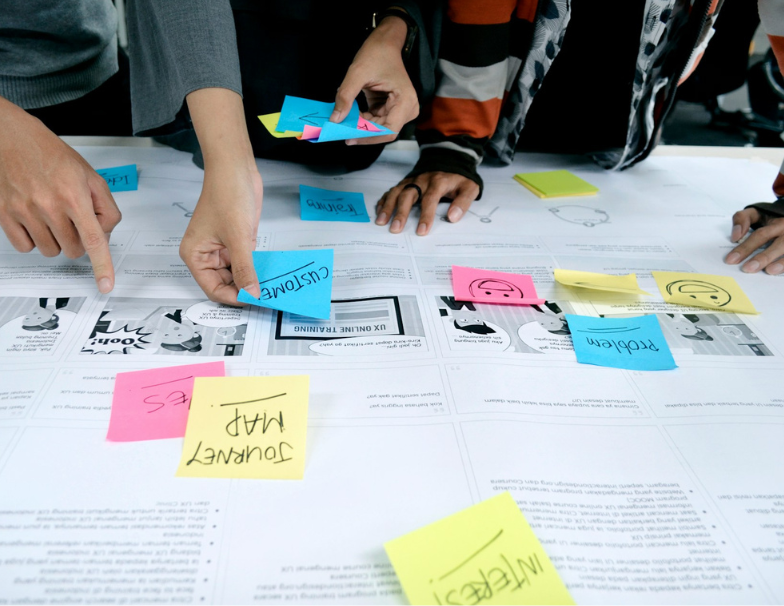Effective Corporate Event Vendor Management: Best Practices & Strategies

Corporate event vendor management is essential for event success. This article provides a step-by-step guide to selecting, managing, and optimizing vendor relationships. Learn practical strategies to ensure your event runs smoothly.
Key Takeaways
- Effective corporate event vendor management involves selecting and nurturing strong relationships with suppliers, leading to cost savings and enhanced event success.
- Clear communication, expectation setting, and regular performance evaluations are key strategies to maintain strong vendor relationships and ensure quality service delivery.
- Utilizing technology for vendor management, including SRM software and event management tools, improves efficiency and fosters collaboration between companies and suppliers.
Understanding Corporate Event Vendor Management

Corporate event vendor management refers to the processes of selecting and managing suppliers or vendors to ensure the success of events. The primary objective of supplier relationship management is to maximize the value derived from interactions with suppliers. This means not only ensuring that vendors deliver what is needed but also fostering an environment of collaboration, reliability, and innovation. Effective vendor management leads to numerous benefits, including cost-effectiveness and the ability to introduce new ideas and approaches to events.
Strong vendor relationships are the backbone of successful corporate events. These relationships contribute to improved product quality, competitive pricing, and enhanced customer satisfaction. Establishing trust through effective vendor management fosters long-term alliances, which are advantageous for both parties. Expanding the interaction beyond the traditional buy-sell dynamic to include collaborative activities allows businesses to create a more robust and innovative event planning process.
Strong vendor relationships ensure a smooth and successful corporate retreat or gathering. Supplier relationship management plays a crucial role in cultivating strong, collaborative ties that benefit both vendors and businesses. Overall, effective corporate event vendor management not only enhances event success but also promotes a sustainable competitive advantage.
Establishing Clear Vendor Relationships
Building trust and transparency in vendor relationships is essential for mutual success and durability. Key elements include:
- Open communication channels to avoid misunderstandings and encourage collaboration between vendors and companies.
- Clear understanding of roles and responsibilities for both parties to work together more effectively.
- Aligning business objectives with vendor goals to promote synergy.
- Collaborative innovations and improved service resulting from aligned goals.
Maintaining consistency in purchasing practices and adhering to reasonable payment terms fosters long-term partnerships with vendors. By ensuring that timely payments are made to pay vendors on time and treated fairly, companies can build trust and loyalty, which in turn leads to more reliable and high-quality service.
Clear and transparent vendor relationships form the foundation of effective supplier relationship management.
Selecting the Right Vendors
Choosing the right vendors is vital for the business success of any corporate event. It’s not just about finding important suppliers who can deliver but ensuring they align with the event’s goals and objectives. Evaluating suppliers on their financial stability and operational capacity ensures they meet business needs and can deliver consistently. A focus on shared success during negotiations fosters partnerships that prioritize long-term value over immediate cost savings.
Researching potential vendors thoroughly and examining their past performance can provide valuable insights into their reliability and quality of service. This due diligence helps in identifying trusted vendors and other suppliers who can contribute significantly to the event’s success.
Selecting the right vendors lays a strong foundation for a seamless and successful selection of event vendors, including collaboration with key suppliers and a diverse supplier base to ensure everyone is on the same page.
Setting Expectations and Service Level Agreements
Setting clear expectations and service level agreements (SLAs) is critical to maintaining strong vendor relationships. Different organizational needs may require varying terms in supplier agreements to clarify expectations. Clarity in a supplier agreement develops trust and ensures a shared understanding between the buyer and supplier. These agreements should define quality guidelines and compliance requirements to ensure consistent performance.
A well-structured supplier agreement must include:
- Robust quality guidelines
- Testing procedures
- Allowances for continuous improvement to enable innovation and collaboration
- Clear expectations and Service Level Agreements (SLAs) to ensure vendors deliver high-quality services consistently
These elements enhance customer satisfaction and contribute to event success.
Effective Communication Strategies

Frequent communication fosters trust and facilitates quick resolutions to issues. Effective communication strategies are key to successful supplier relationship management. Direct messaging and document-sharing tools like Taulia Collaborate can significantly improve communication with suppliers. Supplier portals centralize communication, document sharing, and collaboration, enhancing transparency in supplier interactions.
Regular assessments of vendor performance help organizations ensure they’re maximizing value from suppliers and maintaining quality standards. Sharing data with suppliers encourages collaborative problem-solving. It also leads to efficiency gains.
Successful vendor partnerships at Offsite are fostered through regular communication and shared goals, ensuring alignment with event objectives. By implementing effective communication strategies, companies can build stronger, more reliable vendor relationships.
Regular Check-ins and Updates
Scheduled updates with vendors help in addressing issues before they escalate. Regular check-ins with vendors ensure alignment and smooth operations. Data can be used to regularly monitor key performance indicators and relationship health metrics. Maintaining open communication with vendors contributes to successful corporate event management.
Open communication channels ensure timely delivery and fewer misunderstandings between most companies and vendors. These regular updates and check-ins are essential for continuous improvement and ensuring the success of corporate events.
Utilizing Event Management Software
Event management software plays a crucial role in streamlining processes and enhancing communication with vendors. These tools facilitate real-time communication and document sharing among stakeholders. Such software can automate reminders for updates, ensuring timely interactions with suppliers.
Event management tools enhance communication efficiency by integrating notifications and task management features. For event planners, utilizing these tools can significantly improve the management of vendors and ensure that all aspects of the event run smoothly. Leveraging event management software streamlines processes and enhances vendor relationships.
Performance Evaluation and Feedback
Regular performance evaluations improve services and address issues, enhancing performance management and vendor management. Conducting regular performance reviews facilitates progress checks and discussions about improvement areas. Monitoring vendor performance through clear communication helps avoid unexpected costs during an event.
Technology-enabled feedback mechanisms allow for systematic collection of supplier performance reviews, informing future decisions. Establishing a central supplier database aids in tracking performance and managing supplier relationships effectively.
Continuous improvement in vendor performance is enabled through regular performance reviews and feedback sessions. Regular performance reviews help identify opportunities for cost savings and improve overall supplier relationship management. Implementing performance evaluation and feedback mechanisms ensures the continuous improvement of vendor relationships.
Key Performance Indicators for Vendor Performance
Key performance indicators (KPIs) are essential for assessing supplier performance. Important KPIs for monitoring vendor performance include on-time delivery rates, defect rates, and compliance adherence. Automated supplier scorecards track performance metrics such as quality and compliance, aiding procurement teams in performance evaluations.
Regularly monitoring these KPIs ensures vendors meet the required standards and contribute to the event’s overall success. Effective use of KPIs helps in maintaining strong vendor relationships and achieving customer success and satisfaction.
Conducting Regular Performance Reviews
Frequent performance reviews enhance decision-making and can lead to improved vendor accountability and compliance. Choosing reliable vendors can lead to timely service delivery, contributing to the smooth execution of an event. Regular performance reviews help in identifying areas for improvement and ensuring that vendors are meeting their contractual obligations.
Conducting regular performance reviews helps maintain high standards of quality across all event components, ensuring the success of corporate events. Continuous improvement in vendor performance is essential for achieving long-term success in vendor relationships.
Risk Management in Vendor Relationships

A holistic risk management approach for vendor relationships includes:
- Risk assessments
- Profile development
- Routine audits
- Sourcing diversification
Effective supplier management can lead to a resilient business that can withstand market fluctuations and supply chain disruptions. Understanding challenges such as supply chain disruptions and unforeseen circumstances is crucial for assessing supplier risk.
Assessing supplier risk guards against potential future harm, including financial and operational disruptions. A supplier’s financial stability greatly impacts a business and can lead to quality issues and supply chain disruptions.
Implementing risk management strategies maintains strong vendor relationships and ensures the success of corporate events to mitigate risk.
Risk Assessment and Profiling
Conduct an assessment, renegotiate the contract, or escalate the issue if vendors fall short of performance targets. Frequent slow order fulfillment and untimely deliveries may indicate that a vendor is facing financial difficulties. Regular audits and monitoring of vendors are crucial for maintaining an accurate risk profile.
Diversification of suppliers is a strategy for reducing dependency on a single supplier. The importance of having contingency plans in supplier management anticipates potential disruptions and protects the business from supplier failure.
Managing vendors effectively helps maintain high standards of quality across all event components.
Contingency Planning
It is important to:
- Develop contingency plans.
- Create alternative sourcing strategies to reduce risks linked to a particular supplier.
- Mitigate the impact of unexpected supplier failures through these strategies.
Event planners must be prepared for any eventuality to ensure the event’s success.
Having contingency plans in place mitigates risks and ensures events run smoothly even if unexpected issues arise with vendors. Effective risk management and contingency planning are essential for successful corporate event management.
Leveraging Technology for Vendor Management

Using Supplier Relationship Management (SRM) software offers several benefits:
- Provides insights, tracks supplier performance, and aids in sourcing decisions.
- Centralizes supplier data management, improving procurement efficiency.
- Offers centralized databases for managing supplier information and contracts.
Vendor relationship management software includes supplier scorecards, real-time performance monitoring, and automated compliance tracking. E-sourcing platforms streamline procurement from supplier identification to contract execution, enhancing process efficiency with vendor management tools.
Leveraging technology improves vendor management processes and ensures the success of corporate events while helping to streamline processes.
Building Long-Term Partnerships

Building long-term partnerships with trusted vendors is essential for mutual success and enhances resilience in the supply chain. Strong supplier relationships require work and effort over time to develop trust and transparency. Such mutually beneficial relationships are built on:
- A foundation of consistent communication
- Fair dealing
- Mutual respect
Establishing supplier agreements creates a platform for contributing to each other’s success.
Effective supplier relationship management leads to lower costs, reduced risk, and better quality. Long-term contracts in vendor relationships can result in benefits like better pricing, quality, and delivery terms. Prioritizing long-term relationships can improve operational efficiency and strengthen supply chain resilience. Investments in suppliers foster fewer supply chain disruptions, benefiting both buyers and suppliers.
Key strategies for fostering strong vendor relationships include:
- Recognition and reward programs to foster loyalty and strengthen key vendor relationships.
- Becoming a preferred customer through transparent communication and fulfilling payment terms.
- Collaborating with suppliers in product development to create innovative solutions and stronger partnerships.
- Building long-term partnerships to ensure the ongoing success of corporate events and create a competitive marketplace advantage.
Cost Efficiency and Savings
Negotiating favorable payment terms and volume discounts is essential for achieving cost efficiency in supplier relationships. Utilizing supplier performance data on performance metrics and market trends can strengthen negotiation positions by providing factual support for pricing discussions. A well-managed supplier relationship can lead to significant long-term cost savings by minimizing issues related to availability and quality.
Incorporating flexibility into contracts allows adjustments for market changes, enhancing resilience in supplier agreements. Focusing on cost efficiency and savings reduces operational costs and improves the bottom line, ensuring financial stability and event success.
Case Study: Offsite's Approach to Vendor Management
Offsite helps companies streamline vendor relationship management by connecting them with trusted suppliers. Offsite shares vendor management best practices and offers guidance on how to manage vendors for events effectively. Using Offsite’s approach fosters strong partnerships that lead to successful corporate events.
The impact of Offsite’s strategies is evident in the successful execution of numerous corporate events. Offsite ensures every partnership supports event goals and delivers quality results. From contract negotiations to ongoing supplier relationship management, Offsite provides comprehensive support.
Leveraging Offsite’s expertise and network of trusted vendors helps companies achieve significant cost savings and ensure the success of their corporate events. Offsite’s approach to vendor management exemplifies the best practices and strategies discussed in this blog, making it a valuable resource for event planners.
Summary
Effective corporate event vendor management is essential for ensuring the success of any event. By selecting the right vendors, setting clear expectations, maintaining open communication, and conducting regular performance evaluations, companies can build strong vendor relationships that lead to successful events. Leveraging technology and implementing risk management strategies further enhance vendor management processes.
Building long-term partnerships with trusted vendors and focusing on cost efficiency and savings are key to achieving sustained success in event planning. By following these best practices and strategies, companies can ensure that their corporate events run smoothly and achieve their desired outcomes. Remember, strong vendor management is the cornerstone of successful corporate event planning.
FAQs
- What is corporate event vendor management?
Corporate event vendor management is crucial for selecting and overseeing suppliers to ensure the successful execution of events. Effective management helps streamline operations and maintain quality throughout the event planning process.
- How does effective vendor management benefit corporate events?
Effective vendor management enhances reliability, fosters innovation, and ensures cost-effectiveness, all of which significantly contribute to the success of corporate events. By strategically managing vendors, organizations can create memorable and impactful experiences.
- What are key performance indicators (KPIs) for vendor performance?
Key performance indicators (KPIs) for vendor performance include on-time delivery rates, defect rates, and compliance adherence, which provide crucial insights into their reliability and quality. Monitoring these metrics helps ensure that vendors meet your expectations consistently.
- How can technology enhance vendor management?
Technology significantly enhances vendor management by utilizing tools like Supplier Relationship Management (SRM) software to provide critical insights, monitor supplier performance, and improve sourcing decisions. This leads to more streamlined and effective vendor management processes.
You may also like
Unique spaces for your next offsite
Find distinctive venues for your upcoming corporate retreat.
Stay Updated with Our Insights
Get exclusive content and valuable updates directly to you.







